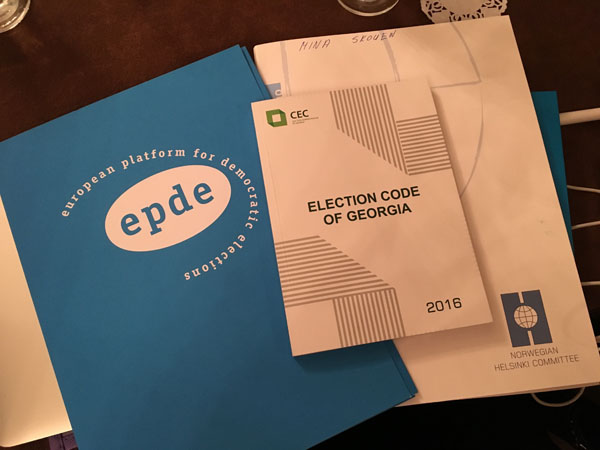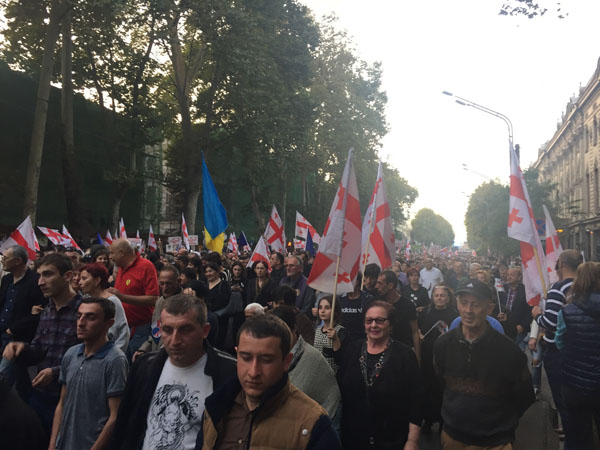A long term observer has been in Georgia since mid-September. The mission will deploy more than thirty observers during election weekend, and will issue its main findings in a statement on Sunday 9 October. A full report from the mission will be published after the run-off elections in early November.
Georgia has a mixed electoral system with in all 150 members of the parliament which will be elected in the presence of a large number of national and international observers. 73 seats in the parliament will be elected by a majority vote in single-member constituencies, and another 77 in a nationwide list proportional representation system. A run-off election in the single-member constituencies (SMCs) where no candidate secured more than half of the votes will be held before 2 November. While the last parliamentary election resulted in a peaceful transfer of power, previous elections have been marred by widespread falsifications.

If Georgia succeeds in holding free and fair elections, the country will consolidate democratic gains made over the last years. The electoral framework has been changed in line with recommendations from the Venice Commission of the Council of Europe and a decision of Georgia’s Constitutional Court from 2015. An important amendment is that the number of voters behind each seat in SMCs will not vary more than 15 percent from the average. While there are improvements in the legal framework, Georgia did not succeed in changing the election system into a purely proportional system, even though a majority of parties expressed an intention to do so.
The general human rights situation in Georgia has improved in recent years, but Georgian NGOs have reported of violations of the election law and irregularities in the pre-election period (cf the election updates of ISFED), such as voter intimidation, destruction of election materials and discrimination based on political opinions or activities. There have also been some allegations of abuse of administrative resources in the election campaign by incumbent candidates. The effectiveness and fairness of the Georgian electoral process, including the way election bodies deal with complaints, will therefore be under close scrutiny during these elections.
During the last week before the Election Day there have reportedly been a few violent incidents. These incidents must be investigated impartially and effectively.
The fairness of the elections also depends on their ability to express the diversity of the population. In this respect, women’s participation and representation will be an issue in Saturday’s parliamentary elections. Hate speech based on gender, sexual orientation and gender identity (LGBTI) religious- and ethnic grounds remain a widespread problem in Georgia, and have according to local NGOs also been frequent during the pre-election campaign.
Read the elections guide for the Parliamentary Elections in Georgia here.
Click here to read more about the European Platform for Democratic Elections.
Learn more about International Partnership for Human Rights.
